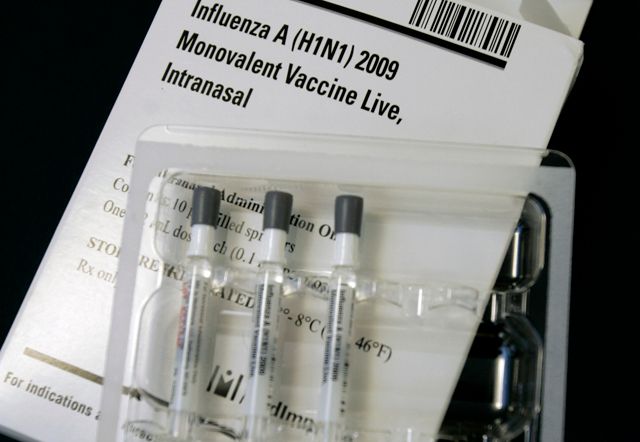Abu Dhabi: With an anticipated increase in H1N1 influenza cases during the winter season, the UAE now stands as the 21st country across the world to receive its first batch of H1N1 vaccine.
The shipment comprised of 40,000 units is now available across private and public schools, primary health care centres and preventive care departments in the UAE.
The vaccine, which will be free of charge, is in the form of a single-use injectable and will be initially given to the most vulnerable people — children, pregnant women, and individuals with chronic diseases — due to supply shortages.
Haj pilgrims will be administered the vaccine beginning today.
According to the Ministry of Health, the H1N1 vaccine is compulsory for Haj pilgrims.
Medical professionals, especially those working in emergency departments will follow. Next in line are children and adolescents from six months to 18 years old who will be classified according to age groups, and finally university students.
Two doses
A single dose of the H1N1 vaccine is sufficient to give immunity against the H1N1 virus for one year, except for children under 10 years, who need two doses.
It takes two weeks for antibodies to respond once the vaccine is administered.
"The person remains susceptible for two weeks, that's why we started with Haj pilgrims, since we want to make sure the vaccine is effective by the time they reach Makkah," explained Dr Mahmoud Fekri, CEO Health Policies and Head of the H1N1 National Scientific Committee.
Dr John Jabbour, Medical Officer, Emerging Diseases, CSR International Health Regulations Officer from the World Health Organisation (WHO) confirmed that the H1N1 vaccine, which the UAE has purchased from GlaxoSmithKline (GSK), is safe but with minor side effects. "The symptoms associated with the vaccine are generally mild, and don't last for more than one to two days. They can include soreness, swelling and redness at the injection site and less often fever, muscle or joint aches or a headache," said Jabbour.
He said the H1N1 vaccine can be taken alongside the seasonal influenza vaccine.
The first shot of the vaccine was administered to General Shaikh Mohammad Bin Zayed Al Nahyan, Crown Prince of Abu Dhabi and Deputy Supreme Commander of the UAE Armed Forces, followed by the Minister of Health, Dr Hanif Hassan.
Other officials from the health ministry and the H1N1 National Scientific Committee were also vaccinated at yesterday's press conference as a sign of reassurance to the public regarding the vaccine.
"So far 40 million people have been vaccinated across 20 countries in Europe. People with chronic diseases, children and pregnant women can be vaccinated without fear. The procedure is painless and fast. It's a simple needle taken on the right arm," Mohammad Khalfan Al Romaithi, General Director of the National Emergency and Crisis Management Authority told Gulf News after he got vaccinated during the press conference.
The next batch of vaccines is due to arrive in next month.
Warning: Inject in different areas
The seasonal vaccine and the H1N1 vaccine can be given at the same time but should be administered on different areas (one on the left arm and the other on the right). It is not recommended to administer the H1N1 vaccine to people who have sensitivity to chicken eggs or sensitivity to any seasonal influenza vaccine.
Those administering the vaccine must be informed about this condition in advance.
Will you be taking the H1N1 vaccination? Why? Do you believe that such vaccinations should be mandatory?













